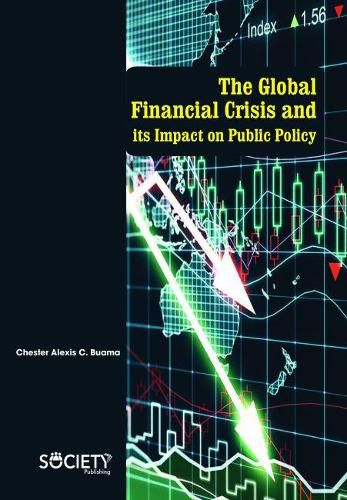Readings Newsletter
Become a Readings Member to make your shopping experience even easier.
Sign in or sign up for free!
You’re not far away from qualifying for FREE standard shipping within Australia
You’ve qualified for FREE standard shipping within Australia
The cart is loading…






The Global Financial Crisis (GFC) has been the most serious worldwide monetary emergency since the Great Depression. Ending a period of expanding flourishing furthermore, development to a sudden stop, the GFC has brought about a subsidence that has prompted resolutely elevated amounts of unemployment in the United States and generally European nations. The monetary cost of the GFC is amazing. At last, this converts into huge human expenses coming about because of unemployment, vagrancy, what’s more, the social ills were the consequences. While there had been budgetary emergencies and embarrassments already, for example, the investment funds and credit disaster and Enron in the United States or the fall of Barings in the United Kingdom, not since the Great Depression has resulted in a circumstance in which those as far as anyone knows in the optimal position to know (national brokers, Treasury authorities, CEOs of budgetary establishments) felt that the whole global budgetary framework may fall. Past monetary catastrophes had to a great extent been constrained to specific firms or parts of the monetary business, for example, investment funds and credits in the United States in the 1980s or the (at that point considerably littler) optional managing an account area in the United Kingdom in the 1970s. The GFC was a considerably more extensive and riskier emergency; it promoted the expression
systemic hazard
to recognize the potential effect of the fall of a few firms on the whole monetary framework.This book investigates the outcomes of the GFC that started in 2008 and whose impacts are as yet being felt. It does not try to clarify the inceptions of the emergency, albeit a few of the commitments have verifiable or unequivocal clarifications installed in them. Rather, we try to analyze the effect of the GFC on country states and their strategies and global monetary courses of action, public policy. The effect of the GFC can be examined from different viewpoints. Market analysts could evaluate the effect as far as lost business, generation, and in wording of the differential hardships, while sociologists could investigate the degree and appropriation of the hardships that people have endured in outcome. Our concentration as political researchers is fundamentally on the policy and political outcomes of the GFC.
$9.00 standard shipping within Australia
FREE standard shipping within Australia for orders over $100.00
Express & International shipping calculated at checkout
The Global Financial Crisis (GFC) has been the most serious worldwide monetary emergency since the Great Depression. Ending a period of expanding flourishing furthermore, development to a sudden stop, the GFC has brought about a subsidence that has prompted resolutely elevated amounts of unemployment in the United States and generally European nations. The monetary cost of the GFC is amazing. At last, this converts into huge human expenses coming about because of unemployment, vagrancy, what’s more, the social ills were the consequences. While there had been budgetary emergencies and embarrassments already, for example, the investment funds and credit disaster and Enron in the United States or the fall of Barings in the United Kingdom, not since the Great Depression has resulted in a circumstance in which those as far as anyone knows in the optimal position to know (national brokers, Treasury authorities, CEOs of budgetary establishments) felt that the whole global budgetary framework may fall. Past monetary catastrophes had to a great extent been constrained to specific firms or parts of the monetary business, for example, investment funds and credits in the United States in the 1980s or the (at that point considerably littler) optional managing an account area in the United Kingdom in the 1970s. The GFC was a considerably more extensive and riskier emergency; it promoted the expression
systemic hazard
to recognize the potential effect of the fall of a few firms on the whole monetary framework.This book investigates the outcomes of the GFC that started in 2008 and whose impacts are as yet being felt. It does not try to clarify the inceptions of the emergency, albeit a few of the commitments have verifiable or unequivocal clarifications installed in them. Rather, we try to analyze the effect of the GFC on country states and their strategies and global monetary courses of action, public policy. The effect of the GFC can be examined from different viewpoints. Market analysts could evaluate the effect as far as lost business, generation, and in wording of the differential hardships, while sociologists could investigate the degree and appropriation of the hardships that people have endured in outcome. Our concentration as political researchers is fundamentally on the policy and political outcomes of the GFC.